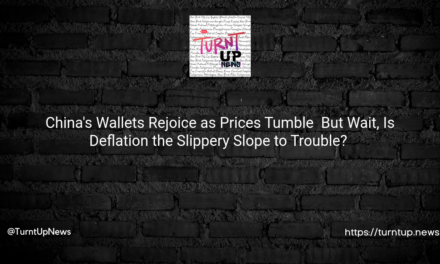💥🇩🇪 BOOM goes the German Economy: Slips into Recession, First Time Post-Pandemic 📉🍺
TL;DR; 😎
Germany, Europe’s heavyweight economy, has just taken a surprise dip in the chilly recession pool. The first-quarter output shrank by 0.3% – that’s not a lot, but in the world of economics, it’s a Godzilla-sized blip. Fingers point to the aftermath of the Ukraine conflict that cranked energy prices sky high. But hey, it’s not all gloom and doom. Construction saw an uptick, thanks to some good weather. Electric car sales, however, took a hit as incentives decreased. And, surprise, surprise, people bought less clothes and food. But, let’s dive into the nitty-gritty, shall we? 🎢🌐
As the news hits that Germany has clocked its first recession since COVID kicked in, one question stands out – “Did anyone really see this coming?” 🤔🔮 Germany, you remember, was the top dog economy of Europe. Recession was not on the cards, or so it seemed. Yet, here we are, standing amidst unexpected shrinkage in first-quarter output.
The stats dropped the bomb on a Thursday, revealing a 0.3% drop from the previous three months. For the number-crunchers out there, that’s after a 0.5% fall between October and December. And guess what? Earlier estimates predicted a stagnation, but looks like someone got the calculations wrong. 🧮💥
According to the statisticians, the households weren’t exactly in a shopping spree mood. Less food and beverage purchases, a downturn in the fashion sector, and even fewer electric car sales – seems like people are choosing to hold onto their euros rather than spending them. 🚗👚🍝
Meanwhile, the government’s expenditure has seen a tumble, but construction is booming (thanks to that unseasonably warm weather). But is that enough to balance the books? 🏗️☀️
When we flip the coin, Germany’s recession raises some eyebrows. Wasn’t Chancellor Olaf Scholz talking tall about avoiding a recession back in January? Guess even the big guns can get it wrong. 💼🇩🇪
Finance Minister Christian Lindner adds to the convo, calling for a turn in economic policy and putting an end to the “neglect of our competitiveness.” He talks big about accelerating planning and approval procedures and leveraging the creative potential. But isn’t it a tad bit late for that, Chris? 📈🎯
In the corporate arena, companies like Zalando SE reflect the flagging consumer sentiment. With falling demand, the fashion retailer’s inventory levels got higher in the first quarter. And in the auto industry, domestic car orders were down by about a third. Even the key manufacturing sector is in a pickle, casting doubts on the rebound many anticipate for the coming quarters. 🏭🛍️
Bundesbank’s recent report offers a ray of optimism, hinting at a “slight” economic growth this quarter. But, with the consumers choosing leisure and travel over goods amidst high inflation, can this optimism last? 💸🌍
The initial 2023 optimism is now replaced by a more grounded reality, according to ING economist Carsten Brzeski. With a drop in purchasing power, thinning out industrial order books, and aggressive monetary policy tightening, it seems the road ahead looks a bit rough.
Meanwhile, inflation doesn’t seem to be helping at all. With a steady 7%





